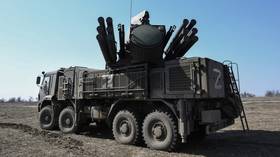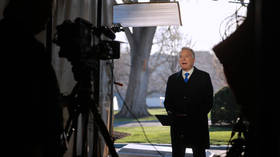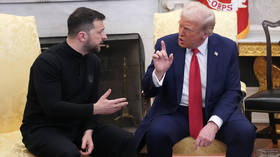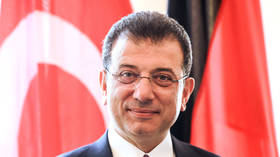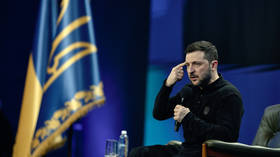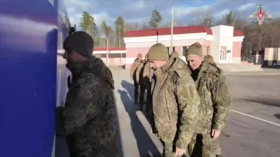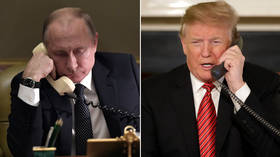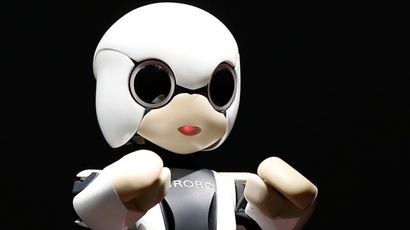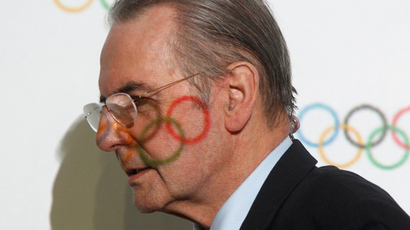Olympic torch spacewalkers dock at International Space Station
The crew who are to take the Sochi 2014 Olympic torch on its record-breaking spacewalk have arrived at the ISS after an express trip from Baikonur Cosmodrome in Kazakhstan. The torch will enter space on November 9th after its own launch on the 7th.
The Soyuz TMA-10M spacecraft carrying an American astronaut and
two Russian cosmonauts has docked at the International Space
Station. The mission which will last for 198 days will be marked
by the special Olympics event.

“We’ll make it as beautiful and spectacular as we can. We want
to make it memorable. Millions of people around the world will be
able to see us at work and see what we do,” Oleg Kotov, one
of the ‘37th expedition’ cosmonauts, told a press conference.
“You’ll be able to see the outside of the ISS with earth in
the background. We aim to make it a visual spectacle…but we don’t
want to give you all the details just yet!” he said.
Kotov will be joined by fellow Russian Sergey Ryazansky, and Mike
Hopkins from the US. They will be the first people in history to
carry the Olympic torch into open space.
While the crew are relatively inexperienced – only Kotov has
previously been in space – the other cosmonauts are enthused by
the confidence he inspires. “I feel very confident, and part
of that comes from our commander, who’s obviously very
experienced,” said Hopkins.
“They have dreamed about this – like we all did – from the time
of childhood,” US astronaut Michael Fossum told RT. “Now
they’re preparing to live that dream…they’re looking forward to
doing the job for which they trained for many years.”
The torch will be delivered to the ISS on a rocket decorated with
Olympic symbols. After it makes its journey through open space,
the iconic sports artifact will be sent back to Earth along with
the returning crew members.
Naked flames are prohibited from being carried inside a spaceship
to the ISS, so the torch itself will not be lit as it makes its
way into space. However, the very same torch will be used to
launch the cauldron during the games’ opening ceremony in
February.
After the space walk in November, the torch expected to
return back to Earth on November 12, after which it will continue
its journeys.
The entire Olympic torch marathon across Russia is set to begin
on October 7 and will cover 65,000 kilometers in more than 100
days.
Other highlights, apart from the space walk, include climbing
Mount Elbrus, the highest peak of Europe, as well as travelling
to the bottom of Lake Baikal and the North Pole.



